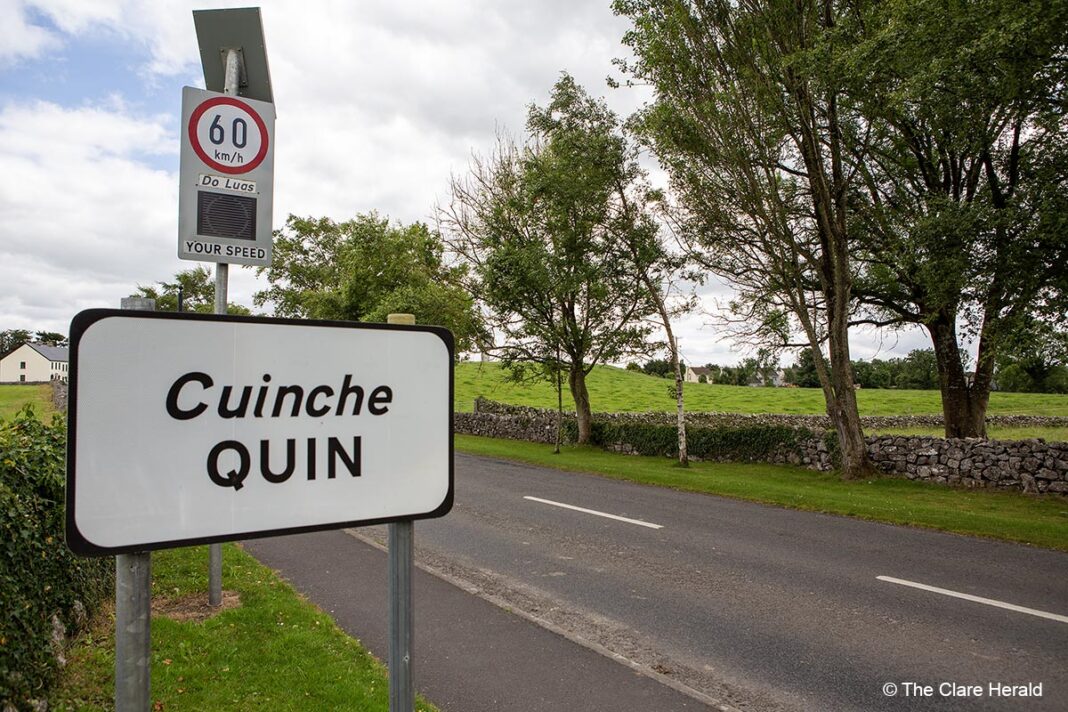Speed limit on national secondary roads to reduce from 100km/h to 80km/h
Speed limit for local and rural roads to reduce from 80km/h to 60km/h
Speed limit on urban roads in built-up areas to reduce to 30km/h
Minister for Transport, Eamon Ryan TD, and Minister of State with special responsibility for road safety Jack Chambers TD, have welcomed today’s decision by the Government to approve the publication of the Road Traffic Bill 2023.
The Bill aims to provide for penalty point reform, mandatory drug testing at the scene of serious collisions and safer speed limits.
The Road Traffic Bill will provide a strong response to the increasing trend in road fatalities and serious injuries. It is intended to support the delivery of the Government’s Road Safety Strategy 2021-2030 targets of reducing fatalities on our roads by 50% this decade and achieving Vision Zero—no deaths or injuries on our roads—by 2050.
Minister Ryan said: “Road safety is a priority for me. Tragically, we have seen an increase in the number of deaths in three out of the last four years. To turn this terrible trend around, we will need a variety of responses, including the implementation and enforcement of robust legislation that closes anomalies and helps ensure that our roads are as safe as they can be. The Road Traffic Bill 2023 will implement appropriate measures to ensure that more families don’t suffer the pain of losing a loved one on our roads, particularly because of excessive speed and irresponsible behaviours. Government approval today puts us on the path to passing this important legislation in early 2024 as a matter of urgency.”’
Minister Chambers said: “There has been a terrible increase in deaths on our roads this year. Introducing much needed legislative reforms on penalty points, mandatory drug testing and speed limits will provide a robust response to this by targeting some of the most dangerous behaviours. Too many families will have an empty seat this year at Christmas, we must utilise the tools at our disposal to ensure we do not see a repeat of this in 2024.”
Minister Chambers said he is also committed to using this legislation to address two anomalies within road traffic legislation which have recently emerged. This concerns Gardaí requiring people to wait while the drug test result is processed following the collection of a sample. The other anomaly relates to Section 2.8 of the Road Traffic Act whereby motorists avoid penalty points which would disqualify them from driving for 6 months and instead serve much shorter, ancillary disqualifications. Measures will be introduced as part of this legislation as it progresses through the Oireachtas to address these matters.

Currently when a person commits more than one penalty point offence on the same occasion, they will receive only one set of penalty points, which will be the highest or joint highest. In contrast, someone who commits those offences on separate occasions will receive penalty points for each offence. The Bill will amend this provision, so that drivers who pay fixed charges for multiple offences committed at the same time will receive two sets of penalty points, which will be the highest or joint highest for the offences committed.
Additionally, in the case where a driver is convicted in court of penalty point offences committed at the same time, all penalty points for all offences will be applied onto the driver’s licence. This will encourage safer driving behaviours and ensure that those who break the law receive adequate consequences.
At present, An Garda Síochána are required to take a breath specimen for the purpose of testing for the presence of alcohol at the scene of a serious road traffic collision. However, Gardaí are not required to conduct drug testing in these circumstances, though they have the option of doing so. This new Bill will require An Garda Síochána to test for drugs at the scene of serious collisions.
The recently published Speed Limit Review contains several recommendations for changes to the speed limit framework. This Bill will include amendments to existing default speed limit legislation for the implementation of safer speed limits on national secondary roads, local roads and built-up areas.

The Speed Limit Review was published in September. The Road Traffic Bill 2023 seeks to give legislative effect to its key recommendations, including:
The default speed limit on national secondary roads to reduce from 100km/h to 80km/h
The default speed limit for local and rural roads to reduce from 80km/h to 60km/h
The default speed limit on urban roads in built-up areas to reduce to 30km/h
Updated guidelines for Local Authorities are being prepared by the Department such that speed limit reviews can commence within each Local Authority in the first half of 2024.
